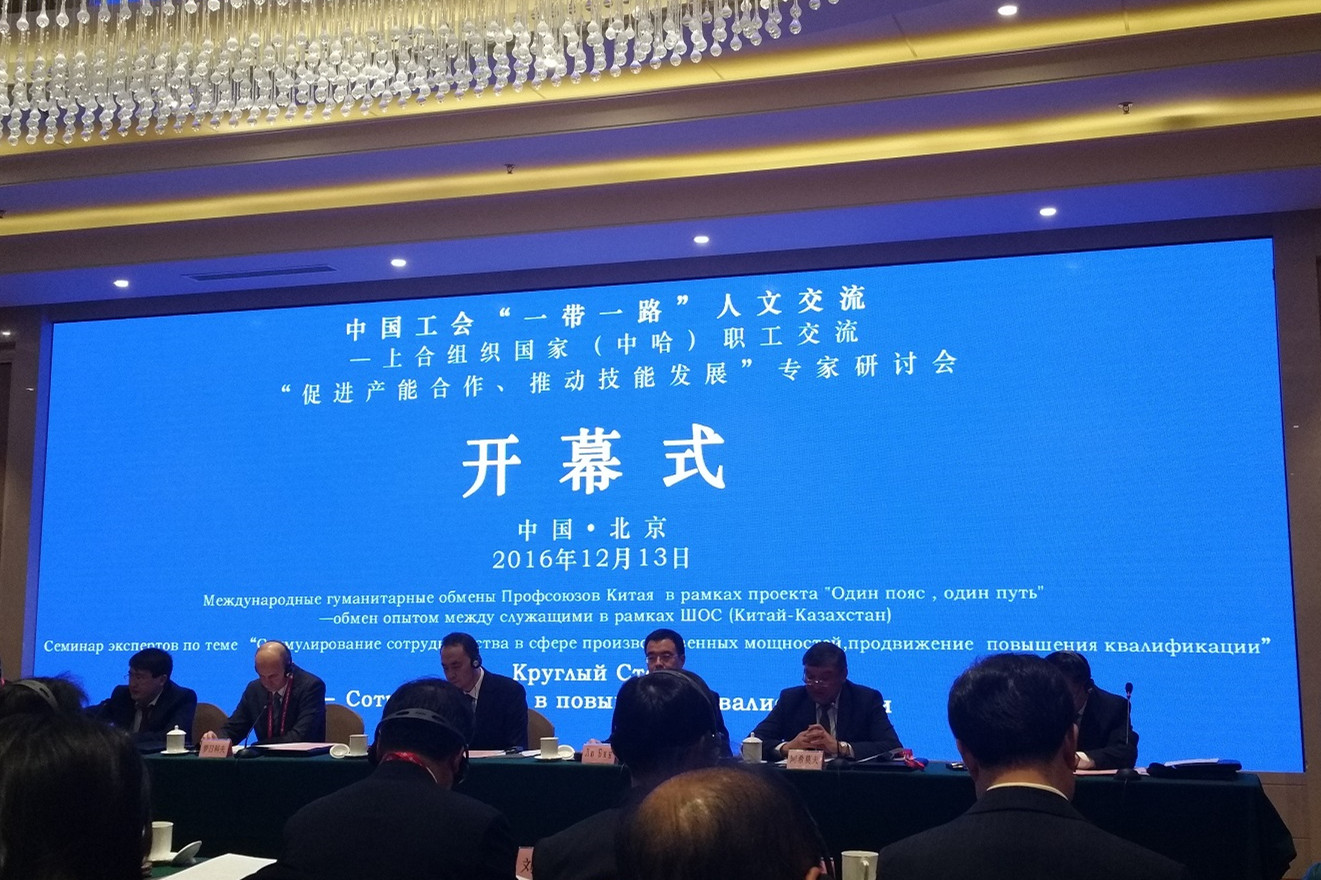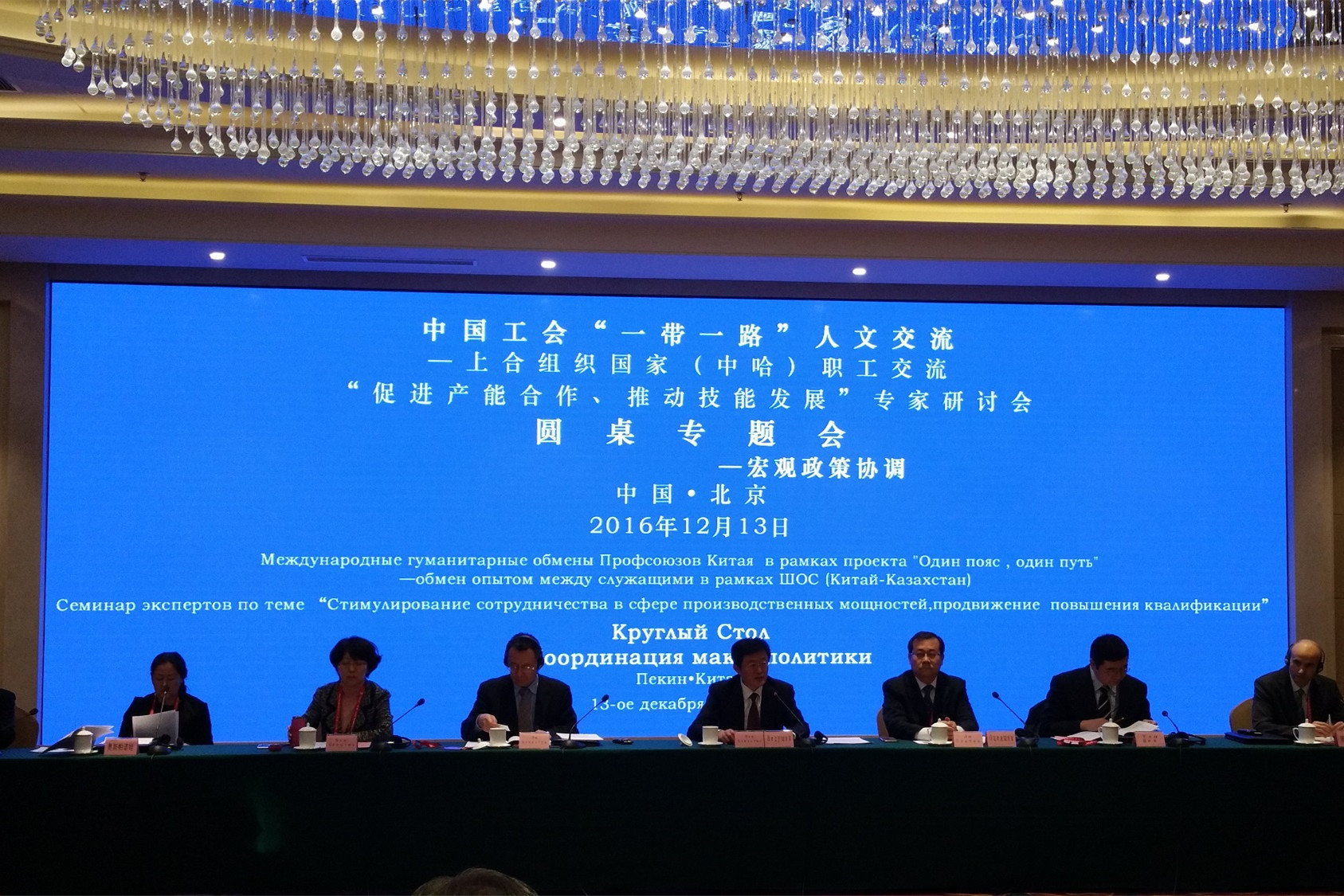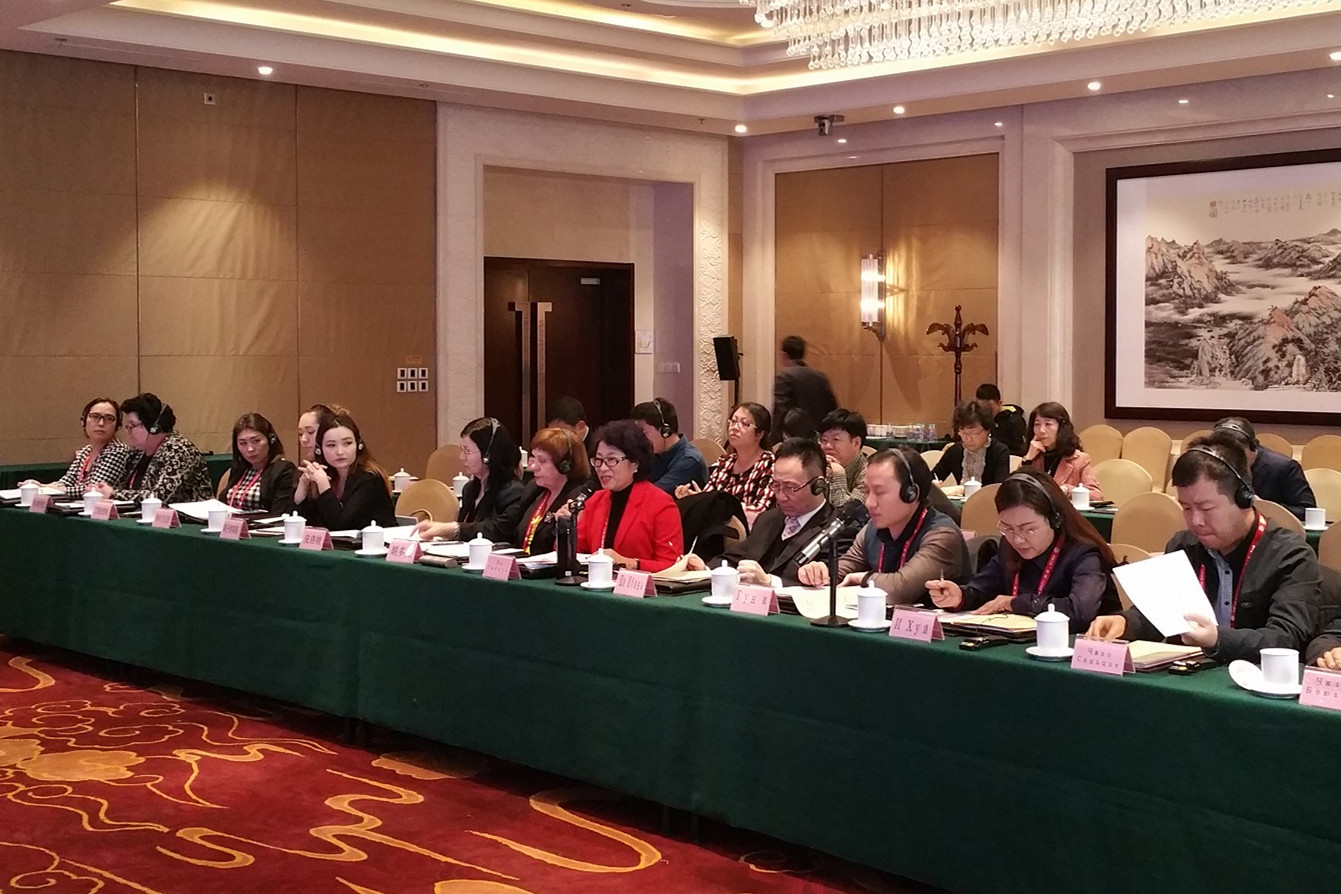From December 13 to 14, the China Workers' Center for International Exchange held the Chinese Trade Unions' "Belt and Road Initiative" People-to-People Exchange - Workers' Exchange in SCO Member States (China and Kazakhstan) and Expert Seminar on "Promoting Capacity Cooperation and Advancing Skills Development". Rozhkov, head of the delegation of Kazakhstan, Asimov, representative of the Embassy of Kazakhstan in China, Jiang Guangping, Vice Chairman, Secretary of the Secretariat and Party Member of the All-China Federation of Trade Unions (ACFTU), and Liu Bin, Deputy Director General of the Department of European-Central Asian Affairs of the Ministry of Foreign Affairs, attended the opening ceremony and delivered speeches. Leaders of relevant ministries and commissions of Kazakhstan, representatives of local government experts and backbone of trade unions, leaders of relevant departments of ministries and commissions of China, including the National Development and Reform Commission, the Ministry of Human Resources and Social Security, the Ministry of Education, the Ministry of Industry and Information Technology, and the ACFTU, and heads of some enterprises and universities attended the meeting. Liu Xiangbing, President of the CULR, and Luo Xuhua, Director of the Higher Vocational College, were invited to attend.

In his speech, Vice Chairman Jiang Guangping, on behalf of the ACFTU, expressed a sincere welcome to the expert exchange delegation, warm congratulations on the commencement of the expert seminar, and heartfelt thanks to friends who have long cared about and supported the development of China's trade union cause. He pointed out that this seminar marks the culmination of the ACFTU's "Belt and Road Initiative" people-to-people exchange program in 2016, aiming to contribute to building a comprehensive strategic partnership of win-win cooperation between China and Kazakhstan and promoting people-to-people communication and practical cooperation within the Shanghai Cooperation Organization (SCO). He expressed his hope that this meeting would become a platform to promote people-to-people communication among countries along the Belt and Road, a window to understand Chinese trade unions and engage with Chinese workers, and an opportunity to deepen practical cooperation among SCO member states.
At the round table discussion on "macro-policy coordination", leaders of China's Ministry of Education, Ministry of Industry and Information Technology, and Ministry of Human Resources and Social Security made speeches on building the modern vocational education system, vocational skill evaluation system and related standards, and promoting the reform of skills education for workers. Relevant Kazakh leaders and experts respectively introduced the reform measures of the Kazakh government in expanding energy capacity and improving quality and efficiency, the skills training of public officials, and the role and functions of trade unions in the process of market economy transformation in Kazakhstan. President Liu Xiangbing commented on the speeches of Chinese and Kazakh experts from the perspective of a practitioner and researcher in the field of education. President Liu expressed his gratitude to the organizers of the seminar, pointing out that the seminar, themed on capacity skills, involved many ministries and commissions between the two countries, and the speeches of the guests were brilliant, reminiscent of a "Sword Competition on Huashan Mountain". President Liu shared four insights with the guests in combination with our university's ongoing work in the training of undergraduate application-oriented talents, the training of trade union cadres and the education of model workers. First, it is very necessary to strengthen diversified school-running, group-based vocational education, integration of industry and education, and combination of work and study in accelerating the construction of a modern vocational education system. Second, it is hoped that the "overpass" connecting vocational education, continuing education, and general education could be more three-dimensional and diversified. Third, a double thumbs-up for the "Action of Learning to Realize Dreams". The action plan for improving the academic qualifications and abilities of migrant workers jointly promoted by the Ministry of Education and the ACFTU is a full reflection of the socialist trade union system and education system with Chinese characteristics, and it holds significant importance. Fourth, as education is gradually shifting from elite education to popular education, there is a widespread shortage of high-skilled talents. It is necessary to create an environment that values and encourages vocational education from multiple perspectives and fields, involving the government, schools, society, and media, enabling people to have diverse educational choices. Finally, President Liu introduced the basic situation of our university's work in the training of undergraduate application-oriented talents, the training of trade union cadres and the education of model workers, and the progress in leveraging disciplinary advantages, researching labor issues, and promoting the labor spirit. He pointed out that the Belt and Road strategy involves technical and talent issues as well as labor relations issues, looking forward to jointly exploring with relevant domestic ministries and commissions as well as relevant departments of Kazakhstan to transform scientific research achievements into practice.

In the keynote speech, Director Luo Xuhua introduced the Higher Vocational College's teaching concept of "integrating classroom learning, practical training, enterprise internship and employment" from four aspects: faculty team, major setup, school-running characteristics, and school-running achievements. She highlighted the teaching characteristics of "bilingual teaching, dual certificates, dual instructors, and dual tracks", and emphasized the specific implementation of the embedded training model for deep integration of industry, academia, and research, the deep integration of work and study model, the experience in university-enterprise cooperation, and the international exchange projects in joint training of specialized master. Director Luo Xuhua said that the Higher Vocational College of our university is willing to contribute to skill cooperation and talent cultivation in relevant fields between China and Kazakhstan.

With the theme of "Promoting Capacity Cooperation and Advancing Skills Development", this seminar provided a platform for China and Kazakhstan to enhance communication and understanding and promote win-win cooperation. At the seminar, our university shared the successful experience, conveyed the university's voice, and displayed the university's image, laying a solid foundation for the university to better participate in the national Belt and Road strategic action plan.
(Foreign Affairs Office, Publicity Department)
